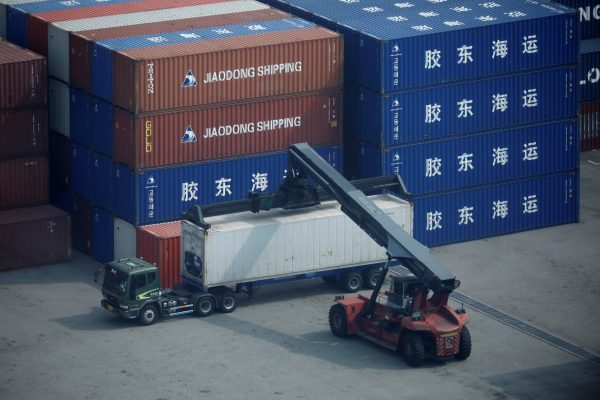The first is an accelerated shift from market to state: more government interventions will further restrict markets. The second is to national unilateralism — governments acting on their own, often against each other — at the expense of global cooperation. The third is to more contested and unstable geopolitics, centred on US–China rivalry. Together, they herald a new mercantilism, whose worst modern precedent is the interwar period in the first half of the 20th century.
Mercantilism is the exercise of state power to control markets domestically and internationally. Malign mercantilism governed the decades preceding 1945. It shattered domestic economies, shrunk individual freedom, destroyed the world economy and poisoned international politics culminating in a global war. Today’s emerging mercantilism is far from that reality but risks heading in that direction.
Three eras of international trade preceded the present pandemic. The quarter-century leading up to the GFC was an era of unprecedented liberalisation and globalisation. The decade after the GFC saw globalisation stall and trade growth stagnate alongside ‘creeping’ protectionism. Starting in early 2017, the final era was triggered by US President Donald Trump in retaliation to increasing Chinese protectionism. This rippled into copycatting protectionism by other countries. Protectionism went from creeping to galloping.
This pandemic has triggered the worst deglobalisation since 1945. International trade may shrink by up to a third, foreign direct investment by up to 40 per cent and international remittances by 20 per cent in 2020.
The trade outlook is worse than it was during the GFC in two ways. Economic contraction is now synchronised around the world. During and after the GFC, fast growth in emerging markets — led by China — cushioned the fall in trade and enabled a recovery. Now, services trade is suffering more than goods trade — travel and tourism have collapsed. The GFC hit goods trade hard but services trade was more resilient, especially travel and tourism. There are signs of a protectionist upsurge, like export bans on medical equipment, with new restrictions on foreign ownership in the pipeline.
What is the medium-term post-vaccine trade outlook?
First, protectionism is likely to increase as a spillover of domestic state interventions — particularly industrial-policy — that will last beyond the present crisis. Crisis-induced subsidies will be difficult to reverse and will have trade-discriminating effects. New screening requirements might decrease foreign investment. These and other interventions to protect domestic sectors have a home-production bias. The list of ‘strategic’ sectors to protect on ‘national security’ grounds against foreign competition will likely expand. There will probably be more restrictions on migration and the cross-border movement of workers.
Second, national unilateralism will likely expand and make effective regional and global policy cooperation difficult. This bodes ill for the WTO, APEC, the G20 and regional organisations like ASEAN. It will also cramp the liberalising effects of stronger preferential trade agreements. This increases the prospect of tit-for-tat retaliation and copycatting protectionism.
Third, the reorientation of global value chains will accelerate. Western multinationals will relocate parts of their production from China to other countries on cost grounds, as they have been doing, and increasingly on political-risk and security grounds. There will be a combination of onshoring, near-shoring and regionalisation of value chains, varying by sector. But the overall effect will be to raise costs for producers and consumers.
Fourth, international trade will be hit harder by a more fractured and conflictual geopolitical environment like the US–China rivalry, and an inward-looking and divided European Union.
This points to a new mercantilist trade order that might be more malign than benign, echoing the ‘new protectionism’ of the 1970s and early 1980s, or more worryingly, the 1920s and 1930s.
The two biggest threats to a stable and open global order are rising illiberal populism in the West, endangering its adherence to liberal values, and the increasingly aggressive illiberalism of the Chinese party-state, with its mix of authoritarianism, a state-directed market economy and external assertiveness. Both have mercantilist features that spill over the border into protectionism and restricted globalisation. Both feed off each other in a global negative-sum game.
China shows signs of becoming a classic mercantilist power, more reminiscent of Germany and Japan in the late 19th century and early 20th century than of the Soviet Union’s totalitarian command economy in the late 20th century. Containing China’s mercantilism while preserving existing links that are mutually beneficial will prove a difficult balancing act.
Small states and middle powers in Asia, the West and elsewhere have a crucial role to play to combat malign mercantilism. They must keep their economies and societies open, demonstrate good policy and institutional practice, and build coalitions for trade and other issues. They must also strengthen alliances with the United States and the European Union to nudge them to be more outward-looking and globally constructive, while finessing a mix of containment and engagement toward China.
Razeen Sally is Visiting Associate Professor at the Lee Kuan Yew School of Public Policy of the National University of Singapore.
This article is part of an EAF special feature series on the novel coronavirus crisis and its impact.


This is excellent writing, distilling one of the major issues of our time:
“The two biggest threats to a stable and open global order are rising illiberal populism in the West, endangering its adherence to liberal values, and the increasingly aggressive illiberalism of the Chinese party-state, with its mix of authoritarianism, a state-directed market economy and external assertiveness. Both have mercantilist features that spill over the border into protectionism and restricted globalisation. Both feed off each other in a global negative-sum game.”